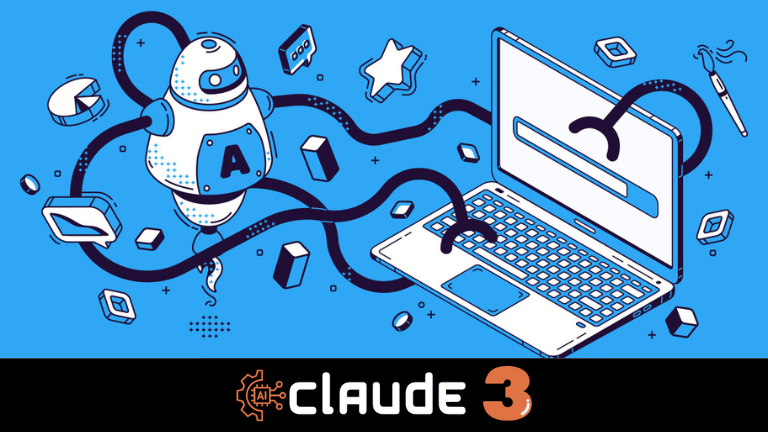Claude 3’s XML Capabilities 2024.In the realm of data processing and information management, the ability to efficiently handle and manipulate structured data formats is of paramount importance. As Anthropic’s Claude 3 continues to push the boundaries of natural language processing (NLP), its capabilities in working with the Extensible Markup Language (XML) have emerged as a pivotal area of interest and evaluation.
XML, a widely adopted standard for representing and exchanging structured data, plays a crucial role in various domains, ranging from document management and data integration to web services and software configuration. Evaluating Claude 3’s proficiency in XML processing not only showcases its versatility but also opens up new avenues for its practical applications across industries.
Embracing Transparency and Reproducibility
Anthropic, with its commitment to responsible and ethical AI development, recognizes the significance of transparency and reproducibility in the evaluation process. To this end, the company has pledged to publish comprehensive reports and findings from Claude 3’s XML benchmarking and assessments, fostering an environment of open discourse and collaboration within the research community.
By embracing open science principles, Anthropic aims to advance the field of NLP and contribute to the collective understanding of language AI’s capabilities in handling structured data formats like XML. This transparency not only promotes accountability but also encourages other researchers and organizations to build upon the findings, conduct further analyses, and contribute to the ongoing improvement of Claude 3’s XML processing capabilities.
Benchmarks and Evaluation Tasks for XML Processing
To comprehensively assess Claude 3’s performance in XML processing, Anthropic has subjected the model to a rigorous suite of benchmarks and evaluation tasks specifically designed to test its abilities in this domain. These benchmarks cover a wide range of XML-related challenges, including parsing, validation, transformation, querying, and generation.
Some of the prominent benchmarks and tasks used to evaluate Claude 3’s XML capabilities include:
- XML Parsing and Validation: Assessing the model’s ability to accurately parse and validate XML documents, ensuring adherence to the XML syntax and schema rules.
- XPath and XQuery: Evaluating Claude 3’s proficiency in using XPath and XQuery, powerful query languages designed for navigating and retrieving data from XML documents.
- XML Transformation: Testing the model’s capacity to transform XML data from one format or structure to another, including tasks such as data mapping, merging, and serialization.
- XML Generation: Examining Claude 3’s ability to generate well-formed and semantically correct XML documents based on provided data or templates.
- XML Integration and Interoperability: Assessing the model’s performance in integrating XML data with other data formats and systems, evaluating its interoperability and compatibility across different platforms and environments.
By subjecting Claude 3 to these diverse benchmarks and tasks, Anthropic can gain a comprehensive understanding of the model’s strengths, limitations, and areas for potential improvement in the realm of XML processing, enabling informed decision-making and targeted optimization efforts.
Comparative Analysis and Industry Positioning
To position Claude 3’s XML capabilities within the broader landscape of NLP and data processing solutions, Anthropic has conducted comparative analyses against other state-of-the-art models and systems. By comparing Claude 3’s performance on XML-related tasks with industry-leading tools and frameworks, researchers can gain insights into the relative strengths and weaknesses of these systems, as well as identify potential areas for collaboration and knowledge sharing.
These comparative analyses not only provide a basis for objective evaluation but also foster healthy competition and drive innovation within the NLP and data processing communities. By setting new benchmarks and pushing the boundaries of what is possible, Claude 3’s XML capabilities inspire researchers and developers to continually refine and advance their solutions, ultimately benefiting the entire field and paving the way for more powerful and capable data processing systems.

Continuous Evaluation and Iterative Improvement
Benchmarking and evaluation are ongoing processes that enable continuous improvement and refinement of Claude 3’s XML capabilities. As new benchmarks and evaluation tasks emerge, and as the model is deployed in real-world applications, Anthropic remains committed to consistently monitoring and assessing its performance.
Through iterative evaluation cycles, Anthropic can identify areas for improvement, implement targeted optimizations, and leverage the insights gained from benchmarking to enhance Claude 3’s XML processing abilities. This continuous evaluation and improvement cycle not only ensures that the model remains relevant and competitive but also fosters a culture of continuous learning and growth within the organization.
Furthermore, by engaging with the broader research community and seeking feedback from domain experts and end-users, Anthropic can better understand the practical implications and real-world applications of Claude 3’s XML capabilities, informing future development efforts and aligning the model’s functionality with the evolving needs of various industries and stakeholders.
Ethical Considerations and Responsible Benchmarking
While benchmarking and evaluation are essential for assessing the performance and capabilities of Claude 3’s XML processing abilities, it is crucial to acknowledge and address the potential ethical considerations that arise from these processes. As AI systems become increasingly sophisticated and capable of handling structured data, there are valid concerns regarding data privacy, security, and the potential for misuse or unintended consequences.
Anthropic recognizes these ethical challenges and is actively engaged in developing robust frameworks and best practices for responsible benchmarking and evaluation. This includes implementing rigorous data privacy and security measures, mitigating potential biases in benchmark datasets, and ensuring that the evaluation process itself does not inadvertently contribute to or reinforce harmful practices or biases.
Furthermore, Anthropic is committed to fostering open and transparent dialogues with stakeholders, policymakers, and the broader public to address concerns and ensure that the development and deployment of Claude 3’s XML capabilities align with ethical principles and societal values.
Conclusion: Unlocking New Frontiers in Structured Data Processing
The evaluation and benchmarking of Claude 3’s XML capabilities represent a critical step in Anthropic’s pursuit of excellence in the field of natural language processing and structured data processing. By subjecting the model to a comprehensive suite of industry-standard benchmarks and evaluation tasks, Anthropic demonstrates its commitment to transparency, accountability, and the relentless pursuit of innovation.
Through rigorous evaluation and comparative analyses, Claude 3’s XML processing abilities are put to the test, providing valuable insights into its strengths, limitations, and potential applications. This process not only informs the ongoing development and optimization efforts but also positions Claude 3 within the broader landscape of state-of-the-art NLP and data processing solutions, fostering healthy competition and driving the entire field forward.
However, benchmarking and evaluation are not mere exercises in performance metrics; they are integral components of a larger journey towards responsible and ethical AI development. By addressing potential ethical considerations, mitigating biases, and fostering open dialogues with stakeholders, Anthropic ensures that the pursuit of excellence in structured data processing remains grounded in principles of fairness, transparency, and alignment with societal values.
As Claude 3’s XML capabilities continue to evolve and push the boundaries of what is possible in structured data processing, the benchmarking and evaluation process will remain a critical component of Anthropic’s commitment to continuous improvement and responsible innovation. Through this relentless pursuit of excellence, coupled with a steadfast adherence to ethical principles, Claude 3 has the potential to shape the future of data processing, unlocking new realms of efficiency, interoperability, and progress across a wide range of industries and applications.

FAQs
What is Claude 3 XML?
Claude 3 XML likely refers to a format or protocol used for exchanging data with the Claude 3 AI model or platform in XML (eXtensible Markup Language) format.
How is Claude 3 XML used?
Claude 3 XML may be used for various purposes, such as importing or exporting data, configuring settings, defining inputs and outputs for AI tasks, or exchanging information between Claude 3 and other systems.
What types of data can be represented in Claude 3 XML?
Claude 3 XML can represent a wide range of data types, including text, metadata, parameters, configurations, and instructions related to AI tasks or interactions with the Claude 3 platform.
Is Claude 3 XML a standard format?
While Claude 3 XML may follow standard XML conventions, its specific format and schema may be proprietary to the Claude 3 platform or customized for specific use cases.
How can I generate or work with Claude 3 XML?
Generating or working with Claude 3 XML may involve using software tools, libraries, or APIs provided by Claude 3, as well as knowledge of XML syntax and structure.
What are some common use cases for Claude 3 XML?
Common use cases for Claude 3 XML may include batch processing of data, importing or exporting datasets, configuring AI models or workflows, and integrating Claude 3 with existing software systems.
Is Claude 3 XML compatible with other data formats?
Claude 3 XML may be compatible with other data formats through conversion or mapping processes. Users may need to consider compatibility and interoperability requirements when working with Claude 3 XML in mixed environments.
Where can I find support or assistance with Claude 3 XML?
Users seeking support or assistance with Claude 3 XML can typically reach out to Claude 3’s customer support, consult documentation and resources provided by Claude 3, or seek assistance from online communities or forums specializing in AI and XML technologies.
